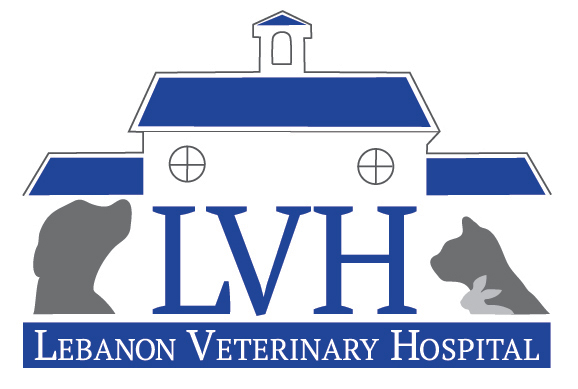Quality of Life
Most senior pets develop one or more medical conditions that worsen with time. Chronic (persistent) medical conditions that tend to affect seniors include:
- Osteoarthritis – joint pain, inflammation
- Cancer – the risk increases with age
- Deafness – occurs gradually as eardrums become less flexible
- Blindness – occurs gradually
- Chronic renal disease – degenerative kidney disease
When a veterinarian assesses a pet’s quality of life, they are looking for several things. The vets here at the Lebanon Veterinary Hospital (LVH) often liken it to how they see their own lives. Are they spending their life in pain: in pain that isn’t controlled or living with more bad days than good? Where is your pet in this assessment? Is your pet hungry or thirsty? Perhaps a feeding tube or just some fluids under the skin to help hydrate your senior would make a difference. Is your pet happy? You can answer this better than anyone. You know your pet. Can they move around on their own or are they unable to leave a favorite spot?
Palliative Care/Hospice
Palliative Care for things like cancer focuses on managing pain and keeping their quality of life as high as possible for their remaining time. Having a plan can alleviate stress and pain for you and your pet. Things like medication, massage, acupuncture, fluids can all help to keep your pet comfortable when treatment is no longer an option.
Hospice care begins when comfort declines. Once we begin to struggle to keep them comfortable, it’s time to focus on their suffering. This is the time to make plans for the next phase.
Euthanasia
You are their best advocate. You know your pet best. Unfortunately, this responsibility ultimately falls to you, their best friend, to know when it’s time. If you feel like they are really suffering or struggling, your vet will listen to you. They can assess them physically, but you know their heart. As someone once told Dr. Z about his beloved Sammy- “She will stay for you, she will drag herself around for you, she will fight until you tell her that she doesn’t need to anymore. Is this how she wants to live?”
When you think your pet is ready-it’s time.
How does euthanasia work? Euthanasia is Greek for “good death.” It is the practice of intentionally ending life to eliminate pain and suffering. Part of the veterinarian’s oath when they are bestowed with their degree includes the verbiage “I solemnly swear to use my scientific knowledge and skills for the benefit of society through the protection of animal health and welfare, the prevention and relief of animal suffering…” This is the most serious part of their oath and all of the Veterinarians that I’ve met, truly own this part of their oath. It is not simply and injection of a lethal solution into your pet. It is not simply finding a vein. It is the compassionate and brave act of approaching a living being, finding what they assess to be the least uncomfortable limb to find a vein-which in senior pets can be a challenge- and first sedate the animal to ease their anxiety, discomfort and awareness of the process.
The veterinarian then calculates the correct amount of drug to cause cessation of the life of the animal. It is done with a burden of responsibility, intention and compassion. Their love for animals is their life’s work, and this unique part of the life cycle requires that their courage and compassion, overtake their personal feelings, sadness and discomfort about the taking of a life. It is both a burden and a gift.
At LVH, our vets and staff are all pet lovers that have personally been through this challenge and take each of these seriously and with the respect and compassion they are so deserving of. You can be assured that every kindness and gentleness will be offered to you and to your beloved pet during this process.
Afterwards? What happens?
After your pet is loving laid to rest, there are a few options. Since we live in CT with rocky soil and long winters, home burials aren’t often an option. Your pet can go home with you, if you can manage it or you can have us manage the cremation of your pet. LVH works with a company that cremates pets and can return the ashes. You can have them cremated with other pets and laid to rest at the site of the crematorium or have your pet cremated individually and returned to you. This is the most commonly utilized method, but we are here for you and will help you understand the options and the costs for each. You can’t ask us anything silly or dumb, we don’t expect you to know this process because none of us want to think about it. Just ask and we will guide you through.
